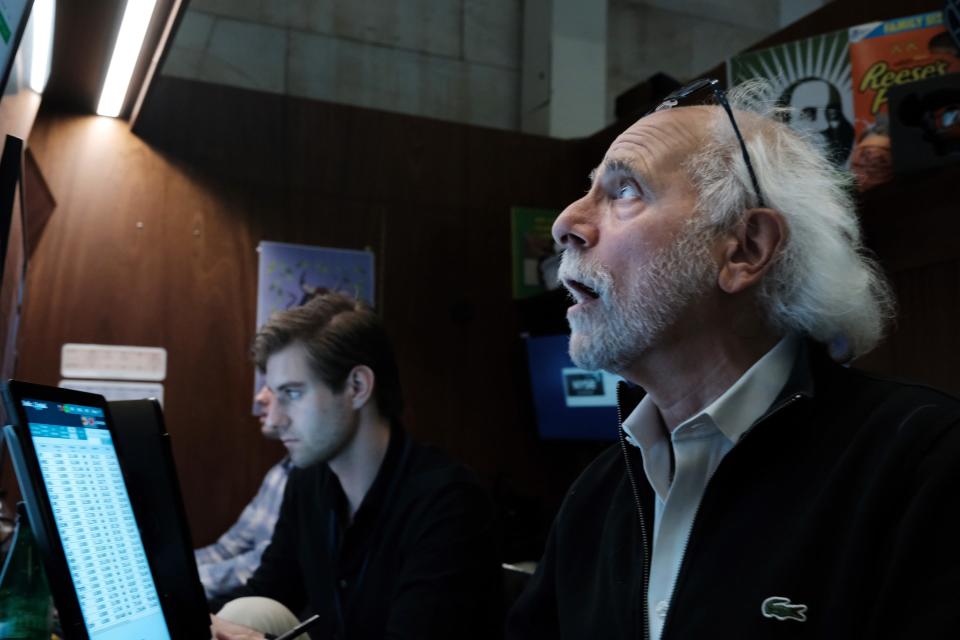The S&P 500 officially enters bear market territory as the Dow plummets over 800 points

It was another dark day on Wall Street on Monday as stocks tumbled following Friday’s worse-than-expected inflation reading.
The S&P 500 sank 3.87% to 3,749, leading the index to a level roughly 22% below its record close in January. Barring a rebound through the end of the day, the drop officially confirms a bear market for the S&P 500, as the index is more than 20% down from its high, the benchmark that separates bears from bulls.
The Dow Jones industrial average also fell roughly 2.8% to 30,518 on Monday, while the tech-heavy Nasdaq fared even worse, plummeting 4.68% to 10,809.
The lack of relief in sight for rising consumer prices has become the talk of Wall Street this week after peak inflation predictions fell by the wayside on Friday. The consumer price index (CPI) rose at an 8.6% annual pace in May, topping analyst estimates and notching a fresh four-decade high, the Labor Department reported last week.
Even core inflation, which removes volatile food and energy prices, surprised to the upside in the latest CPI reading, rising to a 6% annual pace as higher shelter costs hit home.
Walking a ‘tightrope’
The bleak data has investors fearing the Federal Reserve will be forced to become even more aggressive with its interest rate hikes in order to combat inflation. That makes the odds of the central bank securing a so-called “soft landing” for the economy—where inflation is reined in without instigating a recession—a more challenging prospect.
“Chairman Jerome Powell and his colleagues are walking a monetary policy tightrope hoping to avoid a recession while dampening demand,” Mark Hamrick, a senior economic analyst at Bankrate, told Fortune. “This year’s decline in stock prices and rise in bond yields are among the more obvious consequences of the Fed’s actions.”
Despite the stock market rout, many experts argue the Fed must remain steadfast in its approach to fighting inflation as rising consumer prices have become the most important issue facing American consumers, according to a recent Pew Research survey.
“Despite investors’ nervousness, the Federal Reserve is duty-bound to press forward with rate hikes and shrinking its balance sheet for the foreseeable future and surely beyond September, in an effort to truly break inflation’s back,” Danielle DiMartino Booth, CEO and chief strategist of Quill Intelligence, told Fortune via email.
The University of Michigan’s consumer confidence data also left investors feeling less than enthused about the prospects for the U.S. economy moving forward last week.
Ipek Ozkardeskaya, a senior analyst at the online bank Swissquote, said that the index’s drop to its lowest level since 1978 amounted to yet “another hit to investors who were already knocked out by the inflation figure.”
Cryptocurrencies traded down on Monday as well, following extended weakness over the weekend. The drop came after the crypto lender Celsius suspended transactions, withdrawals, and transfers on its platform, citing “extreme market conditions.”
Bitcoin fell over 12% to below $23,500 on Monday, while Ether sank almost 18% to trade around $1,230.
This story was originally featured on Fortune.com

 Yahoo Finance
Yahoo Finance 